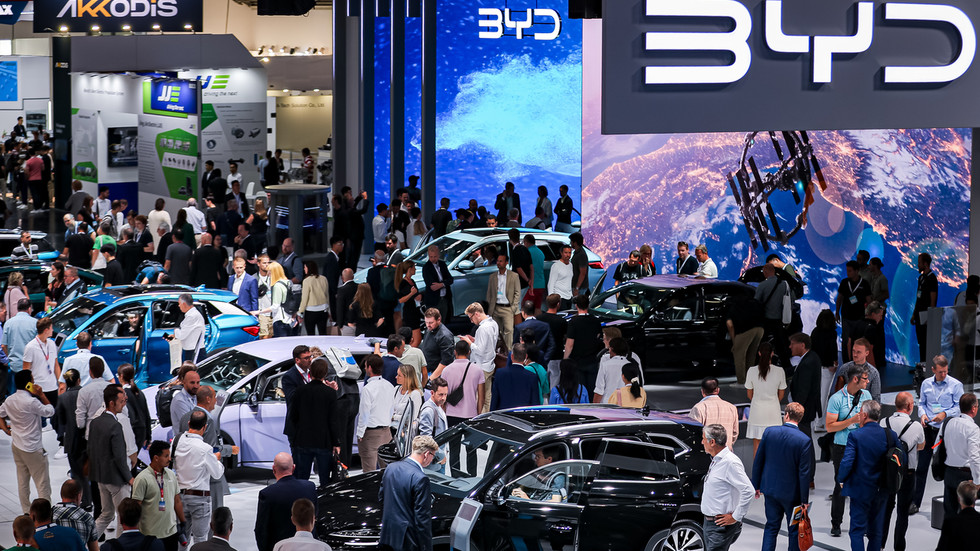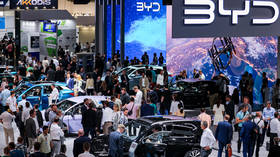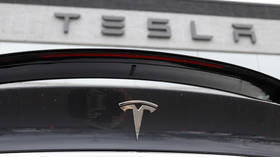
BYD has overtaken the longtime industry leader as the world’s biggest seller of electric vehicles

FILE PHOTO: Visitors look at electric cars of Chinese car brand BYD at the IAA Mobility 2023 international motor show on September 6, 2023 in Munich, Germany © Leonhard Simon / Getty Images
China’s BYD sold more than 526,000 electric vehicles in 2023’s fourth quarter, the Chinese company announced on Monday, exceeding Tesla’s total of over 484,000 in the October-December period and essentially ending the American EV giant’s reign as the industry’s dominant manufacturer.
The result marked the first quarter in which BYD’s sales by volume exceeded that of Tesla and capped a year in which the Chinese carmaker achieved almost double the growth rate of its top US rival.
Tesla still led all EV makers in sales by volume for the full year, delivering more than 1.8 million units in 2023. Shenzhen-based BYD posted sales of nearly 1.6 million vehicles that run on electricity only, as well as more than 1.4 million plug-in hybrids. BYD’s sales jumped 73% from a year earlier, dwarfing Tesla’s gain of 38%.
US billionaire Warren Buffett was an early investor in BYD, buying a 25% stake in the company in 2008, when it was known more for making mobile-phone batteries than cars. Buffett’s Berkshire Hathaway Inc. achieved a 30-fold gain on its investment when it began selling some of its BYD shares in 2022.
That was many years ago. Their cars are highly competitive these days.
— Elon Musk (@elonmusk) May 27, 2023
Tesla CEO Elon Musk laughed off BYD when asked in a 2011 Bloomberg interview about the company becoming an EV rival. At the time, he dismissed BYD, citing its product quality and alleged technological shortcomings. Musk acknowledged the company’s progress last year, saying he was no longer laughing at BYD. “That was many years ago,” he said of the Bloomberg interview. “Their cars are highly competitive these days.”

BYD boasts the advantage of a massive domestic EV market. China accounts for about 55% of global EV sales by volume. However, BYD also has aggressive growth plans in Europe, where it already offers five models. The company targets annual sales of about 800,000 cars in Europe by 2030.
Tesla, on the other hand, has faced slumping demand in its home market, where US buyers have been deterred by higher interest rates and concerns over charging infrastructure. Tesla cut sticker prices by up to $20,000 on some of its models, contributing to a 20% gain in its fourth-quarter sales by volume.




